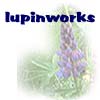Technology & InstructionDistributed Learning CommunitiesThe idea of learning communities has been emerging for some time as an alternative metaphor to traditional instruction. "What happens when groups of people gather together to provide mutual support for learning and performance? How would that work? Rather than being controlled by a teacher or an instructional designer, learners might "self-organize" into functioning communities with a general goal of supporting each other in their learning. That is to say, the function of guidance and control becomes distributed among group participants. Specific roles of group members are not assigned but rather emerge from the interaction of the whole." (Wilson & Ryder, http://carbon.cudenver.edu/%7Emryder/dlc.html) Characteristics:
How does it work? Wilson & Ryder describe the DLC Learning Process in the following way: "Learning can happen in a variety of ways within a DLC; however, a pattern of mutual support will tend to emerge, outlined below. Each step is described in turn.
Both Martin Ryder and Brent Wilson have built extensive web resources for exploring the notion of Dynamic/Distributed Learning Communities. Ryder also has compiled useful resources on Virual Learning Communities. Kevin Facemyer at Washington State University has also explored Distributed Learning Communities. |
|
[ Top ] © Copyright 2009, . All rights reserved. |

